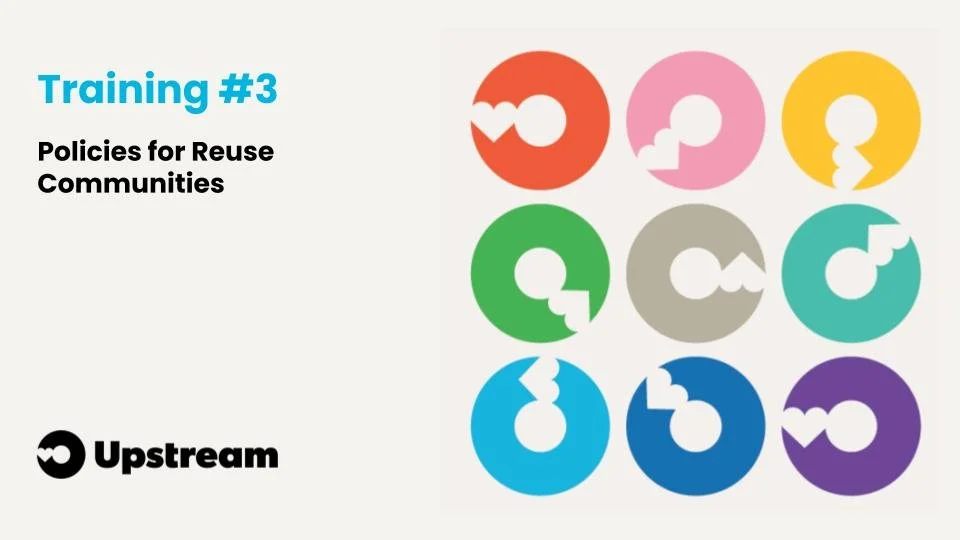Act local: how to pass model foodware policies in your community
Public policy can be one of the most effective accelerators for source reduction and reuse – at the local, state and federal levels.
Right now, the reuse policies that make the most sense to legislate at the local level focus on food service and events (restaurants and catering), as these are business sectors where decisions about how to package are being made locally.
The following outlines several steps to enact these policies.
The model reusable foodware policy
Upstream’s model reusable foodware policy for food service focuses on eliminating unnecessary single-use items and transitioning the rest to reusable. It consists of five key components:
-
Take-out and delivery with utensils, straws, napkins, and condiments that most people already have at home creates instant trash. This policy requires food service operators to “skip the stuff” and only provide these items when a customer specifically asks for them. If you are interested in getting this policy enacted at the local or state level, check out Upstream’s Skip the Stuff campaign. We are supporting activists across North America who are helping to get these policies enacted.
-
With this policy enacted, you sit down to eat at a restaurant and are served with real plates, cups, and utensils – nothing to throw away at the end of your meal.
-
With this policy approach, there is a consumer fee for disposable cups and containers. But you can avoid the costs by bringing your own cup or container – and it also requires that the retailer provides a returnable, reusable alternative at lower cost.
-
With this requirement, you won’t be leaving the festival or sports event trudging through piles of disposable plastic cups because everyone was served with cups that get washed and reused. Learn more about how reuse wins at events and check out the scientific evidence that shows that reusable stainless steel and polypropylene cups dramatically outperform single-use cups across all environmental metrics.
These metrics are useful fodder for helping to pass the Model reduce reuse government purchasing policy – keeping single-use products out of government meetings, events, and offices.
Enacting the policies
Determine your policy priorities.
In order to decide which policies to champion, local coalitions need to learn more about the priorities of the community at large, the business community, and your local legislators. Once you have spent time engaging the business community and connecting with key stakeholders, the policies that make sense in your community will become clear.
Perhaps your efforts will result in new policy approaches to reducing single-use in food service. Whatever you decide, you will have to work with the legislative champion to draft a policy and get it enacted. Get to know the key staff and work closely with them. Take their advice about who to engage and what steps to take to support their office in getting the policy introduced and enacted.
Once you’ve determined what problems you want to solve – whether it’s reducing single-use in food service, or promoting reuse in events, or schools, or construction, or promoting the right to repair – if it requires a legislative solution, you will need a legislative champion. That means finding an elected local leader who will introduce an ordinance and work to get it enacted.
Finding legislative champions is all about building relationships.
Host a litter or beach cleanup and invite local legislators, or meet with them individually.
Find legislators who share your concerns and want to take a leadership role in solving the problems.
Learn from others in the community how the legislators work and what the political dynamics are.
It’s always best to have the Mayor’s support or support from the most powerful of local legislators. Court them first!
Find a legislative champion.
Policy Resources
-

The Reuse Policy Playbook: National Version
Your roadmap to reuse for jurisdictions across the country.
-

The reusable California playbook
Reuse policy is flying forward in California. These recommendations and resources will continue to build the momentum.
Train the Trainer
A training video and slide deck on policies for Reuse Communities. You may request a copy of this deck with notes from info@upstreamsolutions.org if you would like to adapt this training for your own efforts.
The Roadmap to Reuse project was generously funded by the Ocean Protection Council.



